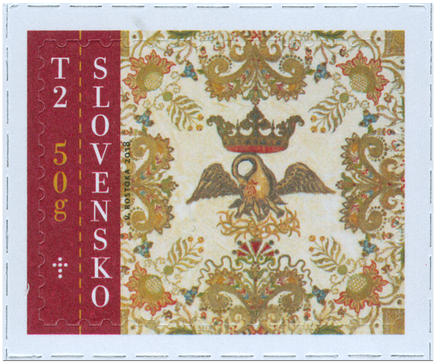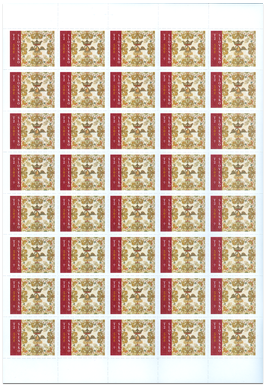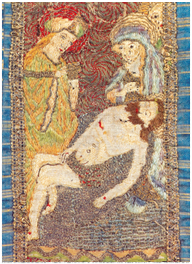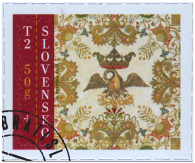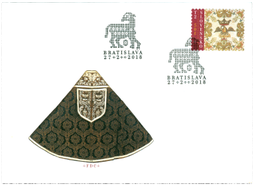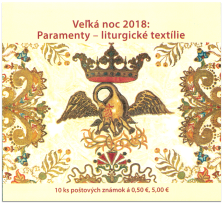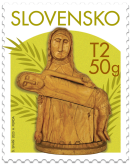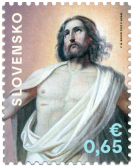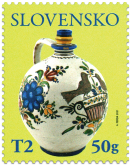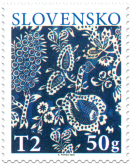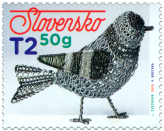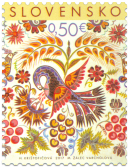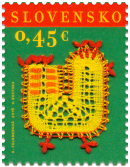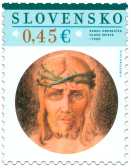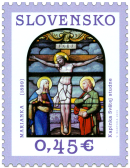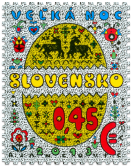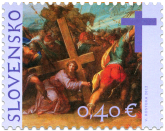656 Date of issue
27.02.2018 Face value
1.00 €
The theme of the postage stamp is Chalice Veil with a Pelican from collection of SNM-Museum of History which is based in Bratislava Castle situated on Bratislava castle and where is deposed an extensive collection of liturgical textiles. This textile artefact was used, in the past, by the Roman Catholic Church during the liturgy to cover the chalice. The origin of the veil is unknown however the embroidery is reminiscent of Italian and French works of the 17th century. This square veil is made of white silk fabric and is almost fully decorated using various embroidery techniques with silk and metal, especially golden, threads. The object demonstrates a masterfully executed work of an embroiderer with metal threads, yarn and applications which are more demanding in terms of regular placement of the stitches and in terms of the modelling of shapes. Silken thread is used in a complicated embroidery technique - knotted stitch, which is used to form the pelican and its young. Tiny knots placed closely next to each other provide the surface of the object with a delicate grain and thanks to that, also some relief. The central theme of a pelican with young and the royal crown above it is coupled with floral themes based in the renaissance tradition of embroidery.
The legend of parental love of the pelican whereby they feed their young with their own blood appeared as early as the 2nd century AD. A pelican whose young gradually ate his heart and fed on his blood is a theme of Christ’s sacrifice on the cross in Christian religion. It was also interpreted within the meaning of resurrection because according to some authors the young of the pelican were killed by a snake and the pelican brought them back to life with droplets of its own blood. In the figurative sense, it is an attribute of personalised Christian love. Other liturgical textiles which have found a place in the Easter 2018 issue is a funeral cope depicted on the FDC surcharge also comes from the collection of SNM-Museum of History. Initially, it was used in the Church of St. Catherine in Kremnica and it was made in approximately 1830, most likely in French Lyon, an important centre of weaving craft. Lastly, the theme of the FDC cancellation is a detail of a chasuble with a passion scene from the 15th century, which is part of the collection of the Spiš Museum in Levoča.
Eva Hasalová
© 2024 POFIS - Postal philatelic service. All rights reserved

